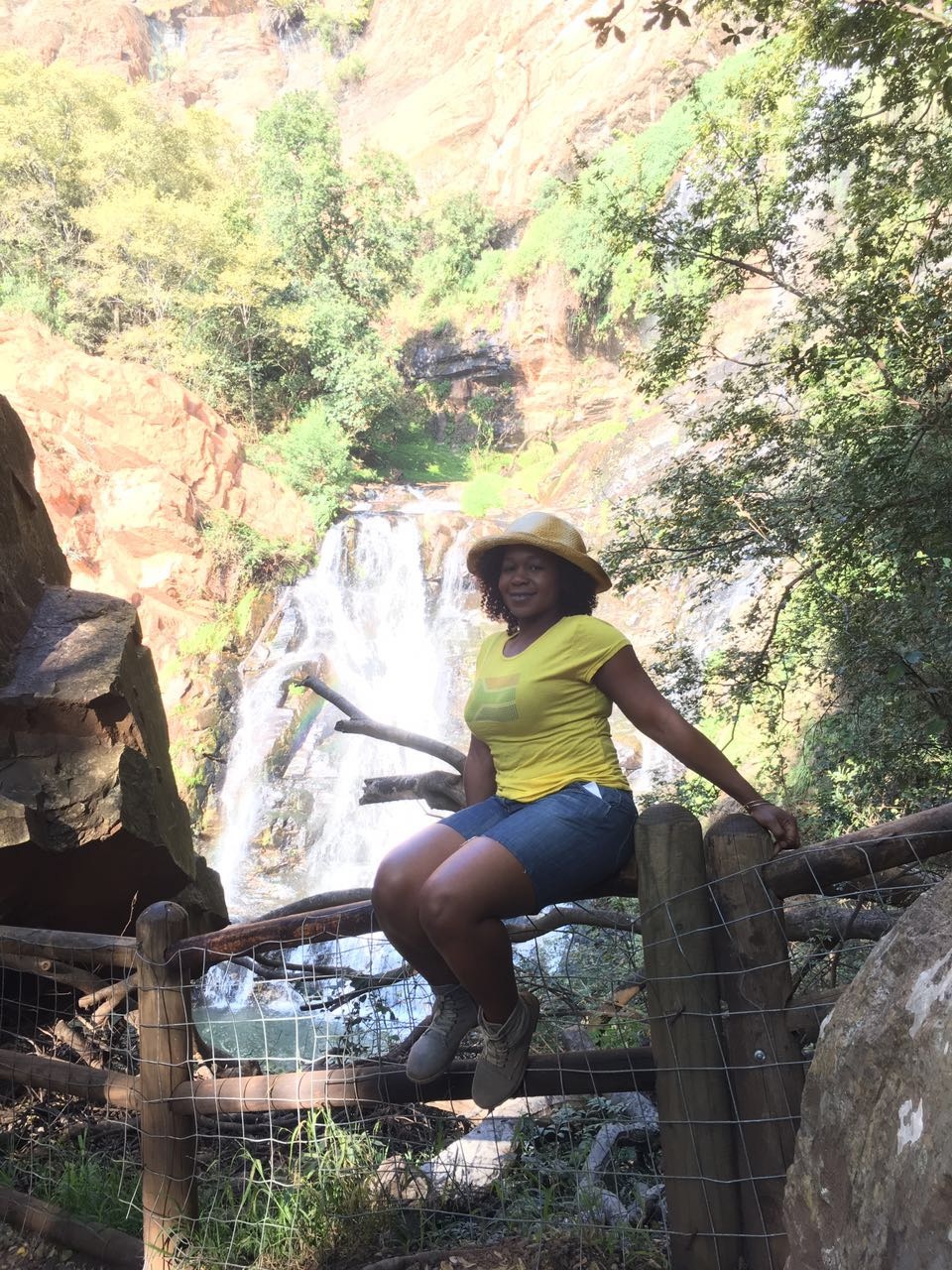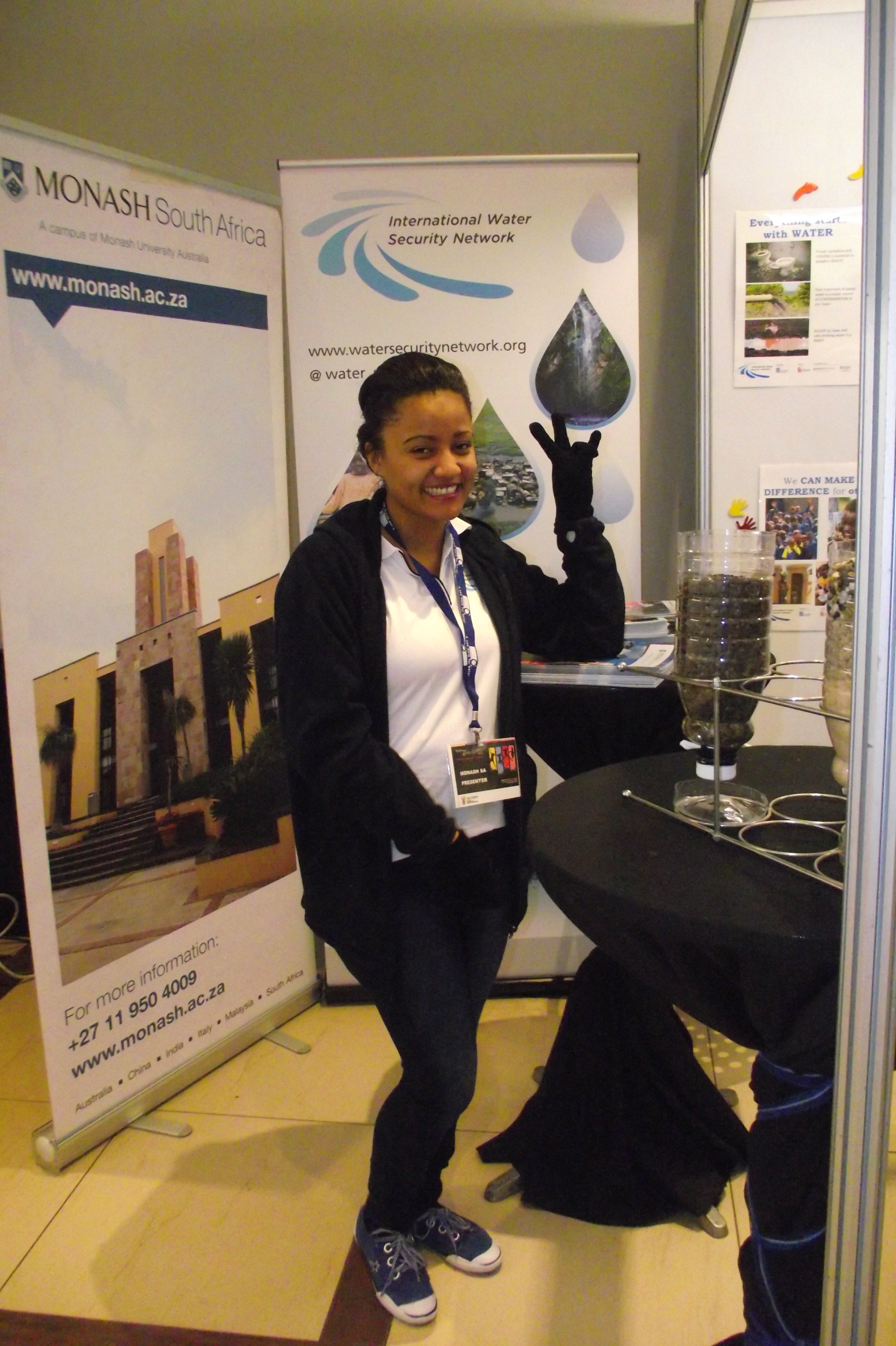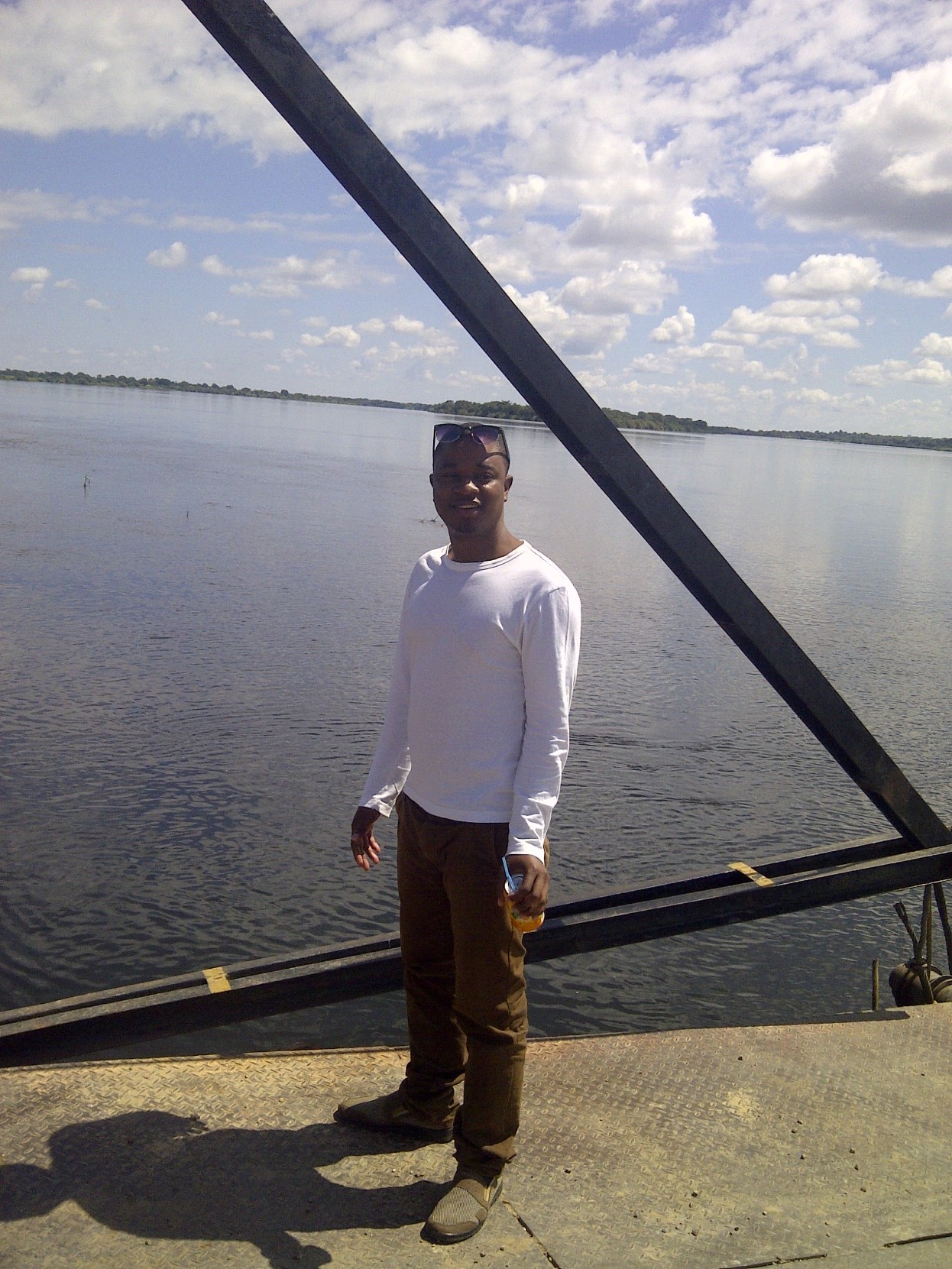In 2015, Monash South Africa recruited four Master of Philosophy students whose tuition has been paid by the International Water Security Network (IWSN). Here, they talk about their course in Integrated Water Management (IWM), their previous studies and their ambitions for the future.
Victor Siingwa
 My passion and interest for research into natural resources management stems from my training in Wildlife Biology at Copperbelt University and previous work experience in wetlands ecology and water bird counts in Zambia, my country of origin. During my work experience, I became exposed to the emerging links between the spreading of invasive plant species (Mimosa Pigra) and the changing flooding regimes on the Kafue flats and their effects on habitat loss for water dependant species.
My passion and interest for research into natural resources management stems from my training in Wildlife Biology at Copperbelt University and previous work experience in wetlands ecology and water bird counts in Zambia, my country of origin. During my work experience, I became exposed to the emerging links between the spreading of invasive plant species (Mimosa Pigra) and the changing flooding regimes on the Kafue flats and their effects on habitat loss for water dependant species.
The MPhil in Integrated Water Management at Monash South Africa has allowed me to appreciate the relationship between social and ecological systems. I am interested in the ways in which ecological systems undergo collapse and reorganisation processes in response to risks and shocks and what these processes can tell us about adaptive governance facets of institutionalisation processes. As a result, I am currently exploring linking adaptive governance to securing water resources in the sugar cane farming industry in the Kafue river basin, Zambia.
When I am not dedicated to my studies I enjoy spending time in nature; walking and hiking, bird watching and volunteering to promote environmental education initiatives. Playing and watching soccer provides a social platform to engage with others around non-career-related topics, and I enjoy listening to music and watching documentaries.
Hlengiwe Dube
 I grew up in Esigodini located in Matabeleland South, Zimbabwe where my parents owned a piece of land under the Mzinyathini Irrigation Scheme. This scheme drew its water from two dams, the Umzingwane and Mtshabezi. We used the water for horticulture and proceeds from the scheme went towards sustaining the family. In 1992 Zimbabwe suffered a severe drought and Matabelaland South was severely affected as it is naturally an arid area due to its proximity to the Kalahari Desert. The government began rationing water in irrigation schemes and this severely affected our horticulture projects. This greatly reduced my parents income and their ability to send me to further my education, despite the fact that I had qualified to go to university and was passionate about pursuing my studies.
I grew up in Esigodini located in Matabeleland South, Zimbabwe where my parents owned a piece of land under the Mzinyathini Irrigation Scheme. This scheme drew its water from two dams, the Umzingwane and Mtshabezi. We used the water for horticulture and proceeds from the scheme went towards sustaining the family. In 1992 Zimbabwe suffered a severe drought and Matabelaland South was severely affected as it is naturally an arid area due to its proximity to the Kalahari Desert. The government began rationing water in irrigation schemes and this severely affected our horticulture projects. This greatly reduced my parents income and their ability to send me to further my education, despite the fact that I had qualified to go to university and was passionate about pursuing my studies.
Over the following six years I worked as a civil servant and eventually I was able to apply for study leave to pursue my academic dreams. I was admitted at the University of Zimbabwe (UZ) and graduated with a Bachelor of Arts Degree in Economic History and Archaeology. Seven years after this I completed a Bachelor of Social Sciences (BSocSc) in International Relations and Management and a BSocSc Honours in International Relations.
Towards the end of my Honours studies I came across an advertisement for the Master of Philosophy in Integrated Water Management, so I applied and was accepted. As the course progressed I took great interest in the politics of water management. I am currently focusing my research in uMngeni, an area in South Africa where I am exploring the politics concerned with water quality in periods of water scarcity. My research takes an interdisciplinary approach and draws theories from Management, Sociology and Political Science. Some of these theories are Political Ecology and Luke’s Three-dimensional Theory of Power.
I am grateful for the Water Security Scholarship because it has lifted the financial burden of pursuing my studies by funding my research and paying my tuition. Although the course is intense and challenging I enjoy it and find time to engage in various leisure activities in the outdoors such as hiking at the Walter Sisulu Botanical Gardens and visiting archaeological sites such as the Cradle of Humankind.
Thandiwe Mpala
 I completed both my Bachelors and Honours degrees in International Relations and Geography at Monash South Africa. I have always been interested in environmental issues, particularly water quality, water and sanitation, wetlands, gender and participation. During my honours year in 2014, I undertook a study examining the impact of mining activities on a wetland’s water quality and it was through this journey that my passion for learning about water grew.
I completed both my Bachelors and Honours degrees in International Relations and Geography at Monash South Africa. I have always been interested in environmental issues, particularly water quality, water and sanitation, wetlands, gender and participation. During my honours year in 2014, I undertook a study examining the impact of mining activities on a wetland’s water quality and it was through this journey that my passion for learning about water grew.
Joining the MPhil IWM programme has helped me grow academically in understanding the importance of water and how it plays a huge role in our lives. My research focuses on the participation of women in water security initiatives in the smallholder out-grower schemes in Zambia’s Kafue Flats. Gender is generally associated with unequal power and access to choices and resources. My research suggests that the differences and inequalities between women and men influence how individuals respond to changes in water resources management and by understanding gender roles, relations, and disparities, it can help explain the choices people make and their different options.
The IWSN Water Security Scholarship has given me the opportunity to network with, and learn from, other individuals who have the same drive in understanding water. In future, this will definitely enable me to improve my skills and knowledge, and will help me contribute to water resource management in Africa. Besides having a passion for water, I enjoy playing sport, reading, listening to music and camping.
Musyani Siame
 I come from the landlocked country of Zambia, a country endowed with many natural resources including rich freshwater systems. About 40% of water in the Southern Africa region is in Zambia, hence the need for effective and cooperative management.
I come from the landlocked country of Zambia, a country endowed with many natural resources including rich freshwater systems. About 40% of water in the Southern Africa region is in Zambia, hence the need for effective and cooperative management.
My education background is entrenched in forestry, environment and natural resources. I hold a Bachelor of Science degree from Copperbelt University in Zambia and always wanted to further my studies by specialising in the water resources-related field. Therefore, immediately after completing my degree, I was connected to Monash South Africa and I developed an interest in joining the MPhil in IWM.
Prior to furthering my studies, I worked as an assistant environmental officer with a private consulting firm in Zambia. I was involved in developing environmental impacts assessment for small, medium and large scale projects. As part of the environmental team, I conducted environmental audits and participated in developing environmental management plans of the projects. One of the primary concerns Zambia is currently faced with is climate change which manifests through drought and floods. Therefore, adaptive capacity of water users needs to be heightened in order to cope with these adverse situations. However, the management of water resources proves challenging not only in Zambia but across Southern Africa due to the increased competition of water utilisation, increased population, climate change effects and increased water scarcity. My research currently focusses on adaptive capacity and climate change in the face of water security issues in Zambia.
During my free time, I love to be outdoors either playing sports, particularly soccer, or hiking and swimming in nature. I am grateful to IWSN for the opportunity they have afforded me to interact and network with many professionals in the water sector through workshops and conferences and I hope to gain the necessary skills and knowledge to contribute to water resources management in Southern Africa, Africa and, by extension, the whole world.
